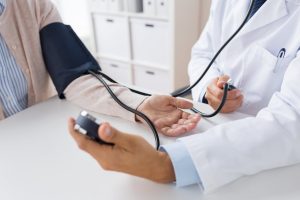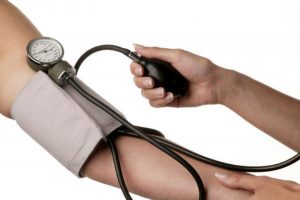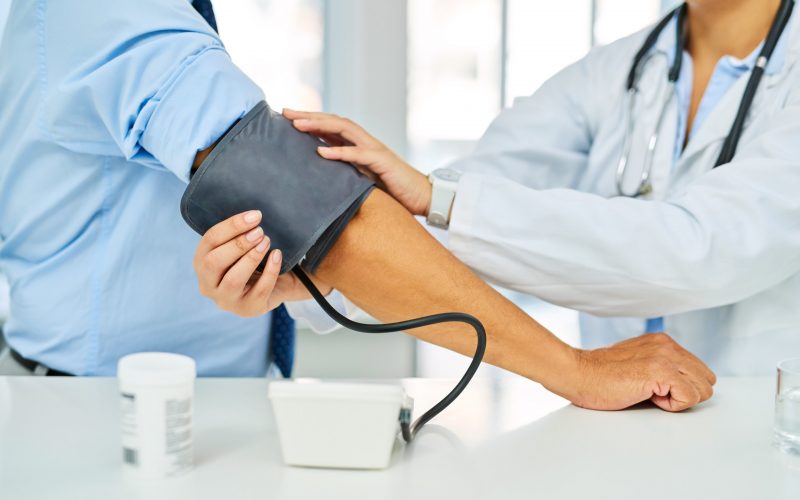The cardiovascular system is a complex structure, on the normal functioning of which the well-coordinated work of all organs depends. The most common problem in the functionality of the heart and blood vessels is a deviation from the norm in blood pressure indicators. We often hear about hypertension – a persistent increase in blood pressure, but lowering it also has an extremely negative effect on overall well-being and leads to the development of serious pathologies. This article will show you what to do if your blood pressure suddenly drops.
What is blood pressure
Blood pressure (BP) is one of the health constants by which one can judge the state of the body. This concept is associated with the constant work of the heart muscle, which, like a pump, pumps blood into large vessels.
As it passes through the arteries, the blood stream exerts pressure on their walls. Blood pressure indicators depend on the elasticity of the walls of blood vessels and the volume of blood entering them at the time of contraction of the heart muscle.
Normal blood pressure in an adult is 120/80 mm. rt. Art. The first number is the pressure at the moment of maximum contraction of the heart muscle, it is called systolic or upper. The second characterizes blood pressure at maximum relaxation of the heart – this is the lower or diastolic pressure.
Normal pressure indicates a sufficient level of oxygen in the blood and high elasticity of the vascular walls.
Blood pressure indicators are influenced not only by the work of the heart and the state of blood vessels, they can change under the influence of a number of factors, for example, emotional state, weather, physical activity.
Blood pressure must be monitored continuously. And an immediate visit to a doctor with a persistent decrease or increase will allow you to identify health problems at an early stage and avoid the risks of developing serious pathologies.
Low pressure reasons
Lowering blood pressure by no more than 20 mm Hg. Art. – this is a relative norm, usually these fluctuations are temporary and do not affect the general well-being. They talk about pathology when for a long time the indicators do not exceed 100/60 mm Hg. Art. This condition is called arterial hypotension and is divided into several types:
Physiological. Low resting blood pressure is often noted in professional athletes, in people working in hazardous industries, living in high mountain areas with a rarefied atmosphere. It is also noted in people living in very low or high temperatures, for example, in the Far North or in regions with a tropical climate. This type of hypotension is called adaptive or compensatory.
Pathological, that is, arising against the background of systemic diseases or a decrease in physical activity. This condition leads to poor circulation. Violation of the mechanisms of regulation of blood pressure and the development of hypotension can occur due to hormonal imbalance, for example, with hypothyroidism or adrenal dysfunction. Hereditary predisposition also plays an important role. Another reason for a sudden drop in blood pressure can be an acute allergic reaction – anaphylactic shock.
Neurogenic – diagnosed mainly in adolescence, is often the result of brain injury or autonomic disorders. Hypotension of this type occurs against the background of dysfunctions of the nervous system or problems with cerebral circulation.
Medication. The reason for the sharp drop in blood pressure is often uncontrolled intake of drugs to lower blood pressure or diuretics.
Low blood pressure can be a symptom of various diseases, in this case they speak of secondary arterial hypotension. A decrease in pressure is characteristic of osteochondrosis, inflammatory infectious diseases, heart failure, stomach ulcers and a number of others.
A sharp decrease in pressure can occur against the background of anaphylactic shock, severe bleeding, intoxication of the body, prolonged dehydration. The tonometer will show low blood pressure values with chronic fatigue, constant lack of sleep, depression.
Hypotension can also be a consequence of improper diet, when a person, in order to quickly lose weight, switches to a diet with a significant calorie deficit. In women, blood pressure often drops with heavy bleeding during menstruation.
Important! The choice of drugs to increase and decrease blood pressure cannot be done independently or on the advice of friends. This can aggravate the situation and lead to irreversible consequences.
Only a doctor can understand the reasons for the decrease in pressure and prescribe the correct treatment after a comprehensive examination.
Low pressure symptoms
The manifestations of hypotension depend on the causes of its occurrence and the form of the disease. If the pressure drops due to an existing disease, then the main symptoms will be precisely the signs of the underlying pathology. To them will be added a constant feeling of fatigue, general weakness, irritability, rapid pulse, headache, increased sweating.
Physiological hypotension is most often a common condition for a person, and he may not experience any discomfort.
With a sharp drop in blood pressure, a person may faint or complain of:
dizziness;
vision problems;
uncertainty when walking;
difficulty breathing.
In this state, there is a significant blanching of the skin, unsteadiness of gait, some confusion of consciousness, inhibited speech is possible.
An acute condition requires immediate medical attention.
Important! If you notice changes in facial expressions, loss of orientation, severe shortness of breath or excessive agitation with signs of hallucinations in a person, call an ambulance immediately. These symptoms are characteristic of the pre-stroke and pre-infarction state – in them every minute counts.
How to increase blood pressure quickly and efficiently
Medicines to increase blood pressure are prescribed only by a doctor. But it is possible to help a person in an acute situation and alleviate his condition with a sudden attack of hypotension without medication.
Coffee
Drinking a strong, freshly ground coffee is the best solution. Caffeine has a pronounced vasoconstrictor effect, so it is good at reducing blood pressure and has a tonic effect.
Massage
Impact on some biologically active points irritates the nerve endings and activates the blood circulation process. Massage has a beneficial effect on all body systems, accelerating metabolism and toning blood vessels.
Important! Massage is a procedure of active influence on the body and should be trusted by professionals with medical education. Incorrect massage technique can cause significant harm to health.
Massage can improve mood, relieve spasms, relieve headache and joint pain, and normalize sleep.
Increasing pressure with power
If low blood pressure is not associated with internal diseases, then it is easy to normalize it by including some foods in the diet:
green tea – it tones up well and improves blood circulation;
kefir, fermented baked milk, yogurt, cottage cheese and other fermented milk products;
celery root, which can be added to salad or other dishes;
strawberries, fresh vegetables and fruits – carrots, tomatoes, pumpkin, apples;
beet juice.
A diet with hypotension is aimed at increasing the general tone of the body, replenishing the deficiency of vitamins and minerals, accelerating metabolic processes and normalizing the water-salt balance.
Pharmacy tinctures
Herbal tinctures are widely used to increase blood pressure and generally strengthen the body. For safety and to avoid the risk of incorrect dosage, it is better to buy tinctures from a pharmacy and strictly follow the directions on the package. And in the future, it is better to consult a doctor and choose the formulations that he recommends.
Ginseng tincture
Ginseng root has been used medicinally for over two thousand years. One of the main properties of this plant is its ability to regulate blood pressure. Depending on the dosage, ginseng root tincture is used to both increase and decrease blood pressure.
The decrease in pressure when taking the tincture is due to:
increasing the general tone of the body;
strengthening the walls of blood vessels;
improved appetite;
normalization of the emotional state;
acceleration of metabolic processes.
Before taking ginseng tincture, you should consult your doctor and make sure there are no contraindications.
Eleutherococcus tincture
It is a proven remedy for nervous disorders, immune system problems and low blood pressure.
It is believed to improve performance and metabolism. It is prescribed for general depletion of the body, physical overload, anemia, atherosclerosis. The biologically active substances contained in the tincture increase vascular tone and normalize blood pressure.
The dosage and duration of the course of treatment is determined by the doctor based on the severity of the symptoms and the absence of contraindications.
Lemongrass tincture
Chinese lemongrass is a type of climbing lianas. In medicine, its fruits are used, which include essential oils, organic acids and trace elements useful for the body.
Lemongrass https://en.wikipedia.org/wiki/Cymbopogon tincture increases vascular tone and has a general tonic effect. The tool can be used to quickly raise blood pressure and normalize well-being.
Important! All herbal remedies can only be used as ancillary therapy. They should only be taken after consulting your doctor at the recommended dosage.
